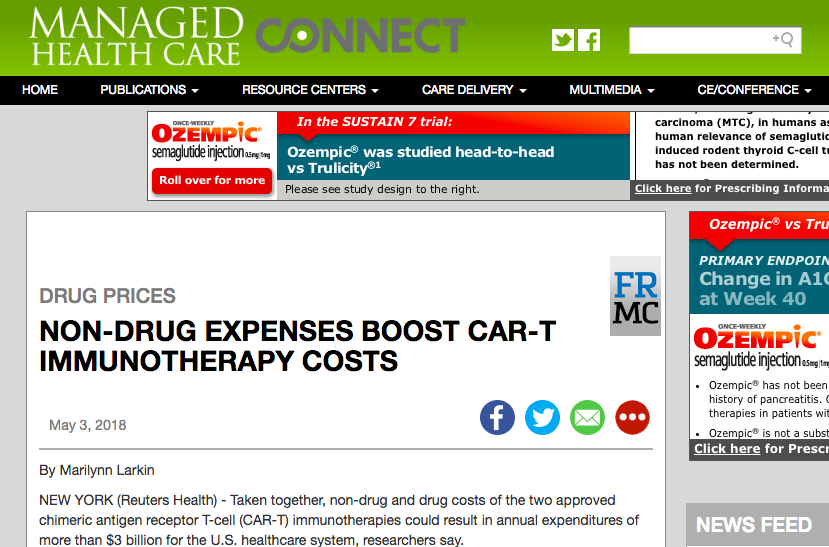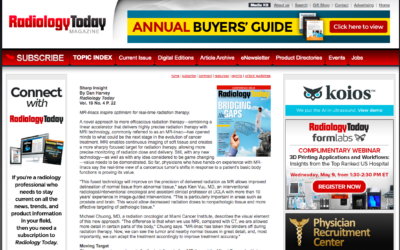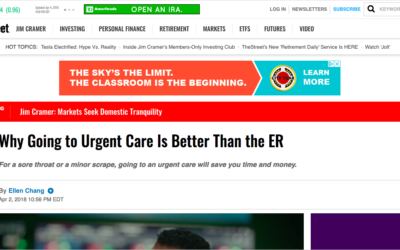See Original, Full article at https://www.managedhealthcareconnect.com/content/non-drug-expenses-boost-car-t-immunotherapy-costs
By Marilynn Larkin
NEW YORK (Reuters Health) – Taken together, non-drug and drug costs of the two approved chimeric antigen receptor T-cell (CAR-T) immunotherapies could result in annual expenditures of more than $3 billion for the U.S. healthcare system, researchers say.
Dr. Immaculada Hernandez of the University of Pittsburgh School of Pharmacy and colleagues evaluated drug and non-drug costs of tisagenlecleucel (Kymriah) and axicabtagene ciloleucel (Yescarta) using various clinical scenarios.
Both are approved for treatment of adults with relapsed or refractory large B-cell lymphoma after two or more lines of systemic therapy, including diffuse large B-cell lymphoma (DLBCL), primary mediastinal large B-cell lymphoma, high-grade B-cell lymphoma, and DLBCL arising from follicular lymphoma.
Non-drug costs included those associated with leukapheresis, lymphodepletion therapy and adverse effects of CAR-T immunotherapy, such as stays in the intensive care unit for cytokine release syndrome (CRS), which occurred in 44% of patients who received tisagenlecleucel in clinical trials.
As reported online April 26 in JAMA Oncology, the total costs per patient treated with tisagenlecleucel ranged from $478,777 for those without CRS to $531,823 for those with severe (grade 3 or higher) CRS.
The mean expected cost was $510,963, which decreased to $432,131 under an outcomes-based pricing arrangement with the manufacturer.
The mean expected cost of axicabtagene ciloleucel per patient treated was $402,647.
“With approximately 600 U.S. patients eligible for tisagenlecleucel every year, the $432,131 estimate would translate into annual expenditures of $259 million,” the authors state. “With 7,500 U.S. patients annually eligible for axicabtagene ciloleucel, the total expenditures would be more than $3 billion.”
“Health care resources are not unlimited,” Dr. Hernandez told Reuters Health. “Money needed to cover new highly expensive therapies with a high budget impact such as CAR-T needs to come from somewhere – either from a re-allocation of funds from other therapies and health services that will no longer be covered or from increased premiums.”
“If we don’t want premiums to keep increasing,” she said by email, “it is necessary to evaluate new therapies thoroughly and assess the benefit they bring for their cost, and how that ratio compares to that of other health services.”
“Only with that evidence, we can make the best informed decision on what health services should be and should not be covered,” she added. “This is what cost-effectiveness does; however, cost-effectiveness is not free of limitations.”





